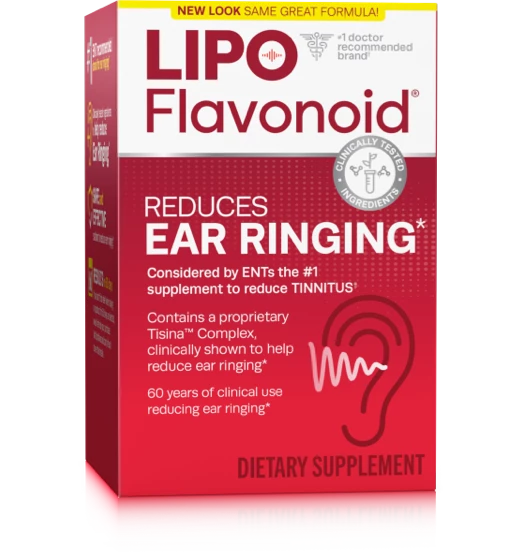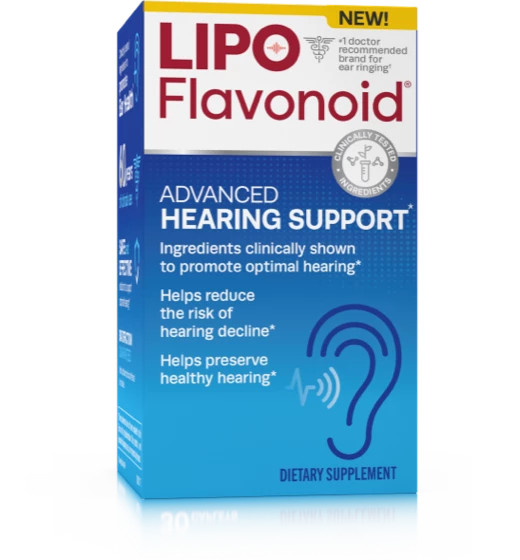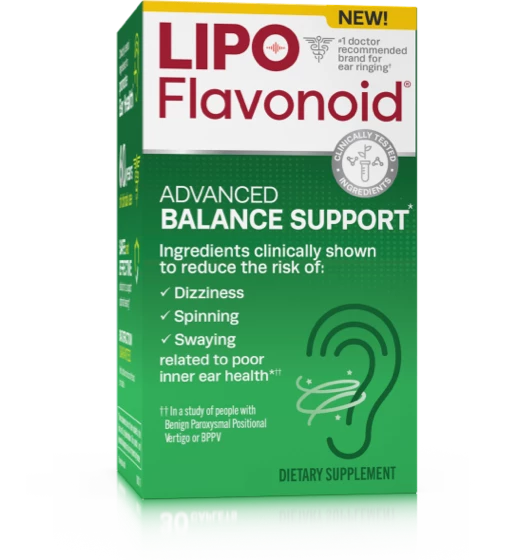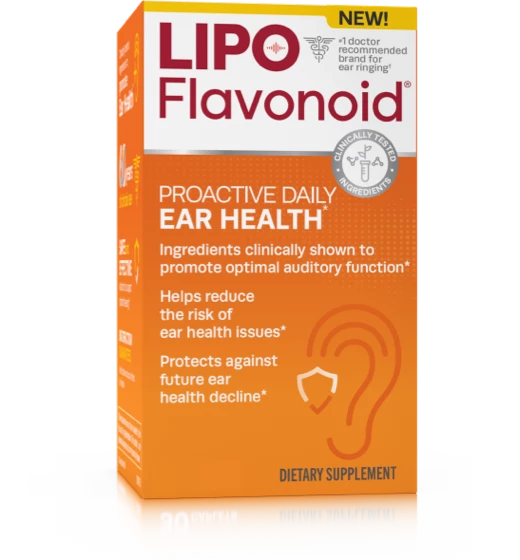- Products
- Science
-
Resources
- Tinnitus Resources
- What is tinnitus?
- Causes of tinnitus
- Tips for managing tinnitus
- Prepare for your doctor's visit
- PTSD and tinnitus
- Tinnitus FAQs
- Hearing Loss Resources
- What is hearing loss?
- Degrees of hearing Impairment
- Types of hearing loss
- Causes of hearing loss
- Treatment options for hearing loss
- Buy Now
- Coupons
- Test Your Hearing
- Test Your Hearing
- Healthcare Professionals
Here’s Why Tinnitus Can Happen to Almost Anyone
People from all over the country and all walks of life experience tinnitus or disturbing “ringing” in the ears. And while you are more at risk for tinnitus if you are older, a male, in the military, or a smoker, the condition also strikes many women, young people, and non-smokers, too.
There’s not yet a cure for tinnitus, but there are ways you can help to prevent your tinnitus from getting worse and to manage your symptoms so they are less disruptive. Understanding the common causes of tinnitus is a good place to start.
Causes of Tinnitus
Loud noises – Extreme volumes, especially if you’re repeatedly exposed to them, can damage and weaken the cells in your ears and lead to hearing loss and tinnitus. Nearly one-third of all tinnitus cases can be traced back to noise damage.2 At work, at home, at leisure – the volume of life is sometimes cranked up way to high for the health and longevity of the delicate structures in our ears. Those who work in factories, the military, construction, or the music industry are at particular risk. Crowded places, concerts, sporting events, recreational shooting, and listening to loud music with earbuds can also put ears in danger.1,3
Aging – Among the many effects of aging is gradual hearing loss, usually starting at about age 60. Hearing loss can cause tinnitus. Also, with age, the little bones in our ears can stiffen – affecting hearing and leading to tinnitus. And, with the passage of time, we can accumulate more noise-related ear damage.1,3
Medications – Certain medications can initiate tinnitus or make it worse, even if they haven’t before. Medications linked to tinnitus include aspirin (in high doses), non-steroidal anti-inflammatory drugs (NSAIDs), antibiotics, cancer medicines, diuretics (water pills), and some antidepressants. NEVER, however, stop taking any medications without talking to your doctor first. The risks of stopping a medication may far exceed any potential benefit.1,3
Earwax – Earwax helps clean, protect, and lubricate our ears. And, usually, just by moving our jaws in day-to-day life, we’re able to do all the earwax removal necessary. No cotton-tipped swabs required! Sometimes, though, too much earwax can cause pain, tinnitus, or hearing loss. DO NOT try to solve this problem on your own. Excessive earwax needs to be removed by a healthcare professional to avoid damage to the delicate cells and structures responsible for your hearing.1,3
Medical conditions – A wide range of medical issues can lead to tinnitus. These may include: nasal congestion from a severe cold or sinus infection, barotrauma (due to extreme changes in air or water pressure such as with scuba diving), traumatic brain injury (especially after exposure to an explosive blast), Meniere’s disease (an inner ear disorder), temporomandibular joint (TMJ) problems, head or neck injuries, dental issues, certain cancers, and blood vessel disorders (such as narrowed arteries, high blood pressure, or turbulent blood flow.)1,3
Tinnitus ManagementTips
If you suffer from tinnitus, talk to your doctor or a hearing professional about it and have a thorough health examination. Be sure your appointment includes a review of any medical conditions you may be experiencing and any prescription, over-the-couther or herbal products you’re taking.
Follow your doctor’s advice, as always, and then follow these steps to minimize further ear damage and hopefully improve your symptoms.
Avoid loud noises: Reducing your exposure to loud, ear-irritating sounds can help improve your tinnitus. Keep earplugs, noise-reducing earphones, or other ear protection handy so you are ready to safeguard your ears from extreme volumes. Use ear protection before loud noises begin and leave noisy environments before removing your ear protection. If you find yourself in a noisy place, position yourself as far away from speakers and other sound sources as possible. Every 15 to 20 minutes give your ears a break by finding a quiet spot to “escape.” Ongoing noise stress damages the cells in your ears, but allowing them time to recoup could make the difference between permanent and temporary problems. If you listen to music using earbuds or earphones, turn down the volume and give your ears the same silence breaks mentioned above.3
Cover the ringing: Try using a fan, soft music or other “white noise” to help disguise the sounds of tinnitus. This works best in a quiet room.
Track your triggers: Keep a record of your tinnitus symptoms, their severity, your diet, and other factors so you can notice patterns, trends, and potential tinnitus triggers. Some things to consider may be potential effects (positive or negative) of caffeine, alcohol, nicotine, salt, sugar, artificial sweeteners, eggs, stress, sleep, or exercise on your symptoms. Obviously if you think something is making your tinnitus worse, try to avoid it and see what happens.
Try a nutritional supplement to support ear health: With consistent use as directed, the nutrients in Lipo-Flavonoid® Plus have been shown to improve the symptoms of tinnitus in some people.4-10 According to a recent survey of 250 ear, nose and throat specialists (otolaryngologists), 100% recommend nutritional supplements to their tinnitus patients and 85% recommend the brand Lipo-Flavonoid® specifically.11
Take care of your health: Regular exercise, a balanced, nutritious diet, good sleep habits, and stress reduction strategies can help to keep your blood vessels healthy and improve your general well-being, which, in turn, can help to improve your tinnitus symptoms and your ability to deal with them.12
Get support: A licensed therapist or psychologist can help you to learn new coping skills so you can better manage your tinnitus symptoms and the impact they have on your life. Support groups can give you cathartic opportunities to share your experiences and learn tips from fellow tinnitus sufferers.
We encourage you to stay positive, stay informed about prevention and treatment options, and stay aware of new research.
Beyond the ringing, humming, buzzing, whirring, and whooshing of tinnitus there is the sound of hope. Learn more at LipoFlavonoid.com and ATA.org.
References:
- Tinnitus. Mayo Clinic website http://www.mayoclinic.org/diseases-conditions/tinnitus/symptoms-causes/dxc-20180362. Accessed Sept. 9, 2016.
- Reduce Your Risk. Hearing Health Foundation website http://hearinghealthfoundation.org/reduce_your_risk. Accessed Sept. 9, 2016.
- Understanding the Facts. American Tinnitus Assocation website http://www.ata.org/understanding-facts/causes. Accessed Sept. 9, 2016.
- Slattery W, Fayad J. Medical treatment of Meniere’s disease. Otolaryngologic Clinics of North America 1997; 30:1027-37.
- Fetterman B, Saunders J, Luxford W. Prognosis and treatment of sudden sensorineural hearing loss. Am J Otol 1996; 17:529-36.
- Arenberg I, Bayer R. Therapeutic Options in Meniere’s Disease. Arch Otolaryngol 1977;103: 589-93.
- Shaia F, Sheehy J. Sudden sensori-neural hearing impairment: a report of 1,220 cases. Laryngoscope 1976; 86:389-98.
- Herschberg S. Meniere’s disease. J Am Osteopathic Association 1974; 73:540-6.
- Wolfson R. Treatment of Meniere’s disease. Modern Treatment (1969) 6,3, 553-567.
- Williams, H.L. & Hedgecock, L.D. Citrus Bioflavonoids, Ascorbic Acid and Other B-vitamins in the Treatment of certain types of neurosensory deafness a preliminary report”. Staff meeting of the Mayo Clinic (1962)
- April 2016 Survey. Clarion Brands Inc. Data on file.
- Thoughts on Diet and Hearing Loss. American Academy of Audiology website http://www.audiology.org/news/thoughts-diet-and-hearing-loss. Accessed Sept. 7, 2016.
*These statements have not been evaluated by the Food and Drug Administration. These products are not intended to diagnose, treat, cure or prevent any disease.
*Survey data on file
REFERENCES:
- April 2018 Survey. Clarion Brands Inc. data on file.
- Williams H, Hedgecock L. Citrus Bioflavonoids, Ascorbic Acid and Other B-vitamins in the Treatment of certain types of neurosensory deafness a preliminary report. Staff meeting of the Mayo Clinic (1962).
- Tinnitus Overview. Mayo Clinic website http://www.mayoclinic.org/diseases-conditions/tinnitus/basics/definition/con-20021487. Accessed Sept. 7, 2016.
- Understanding the Facts. American Tinnitus Associations website https://www.ata.org/understanding-facts. Accessed Sept. 7, 2016.
- Slattery WH, Fayad JN. Medical treatment of Meniere's disease. Otolaryngologic Clinics of North America 1997; 30:1027-37.
- Kumar S, Pandey AK. Chemistry and Biological Activities of Flavonoids: An Overview. The Scientific World Journal. 2013;2013:162750. doi:10.1155/2013/162750.
- Fetterman BL, Saunders JE, Luxford WM. Prognosis and treatment of sudden sensorineural hearing loss. Am J Otol 1996; 17:529-36.
- Arenberg I, Bayer R. Therapeutic Options in Meniere’s Disease. Arch Otolaryngol 1977;103: 589-93.
- Shaia F, Sheehy J. Sudden sensori-neural hearing impairment: a report of 1,220 cases. Laryngoscope 1976; 86:389-98.
- Herschberg S. Meniere’s disease. J Am Osteopathic Association 1974; 73:540-6.
- Wolfson R. Treatment of Meniere’s disease. Modern Treatment (1969) 6,3, 553-567.
- Rubin W. Vestibular suppressant drugs. Arch Otolaryngol 1973; 97:135-8




